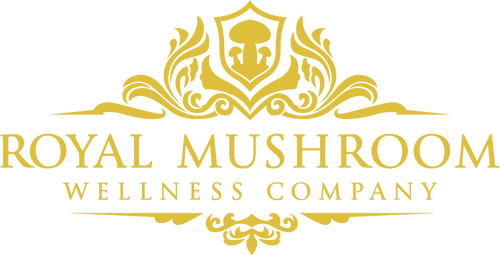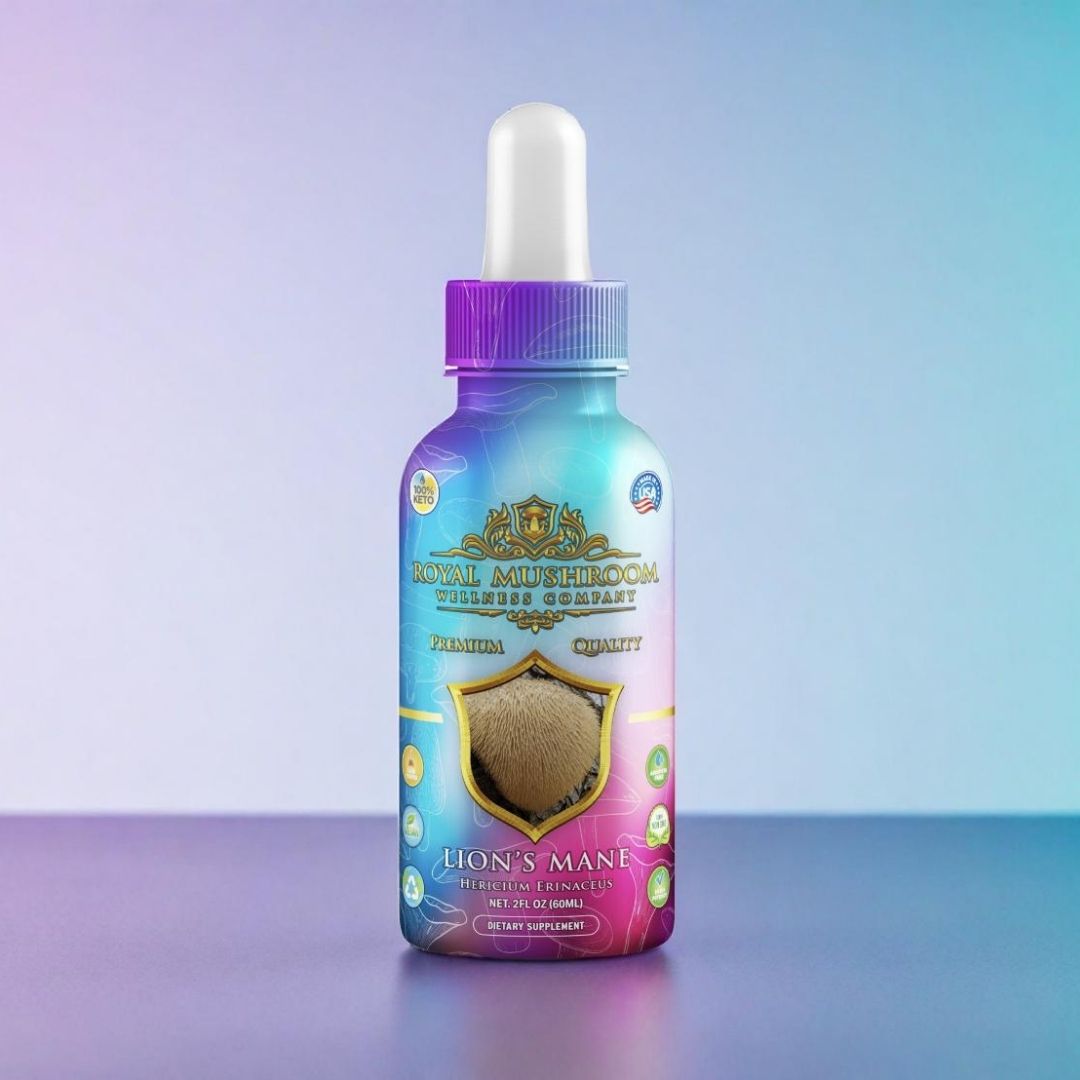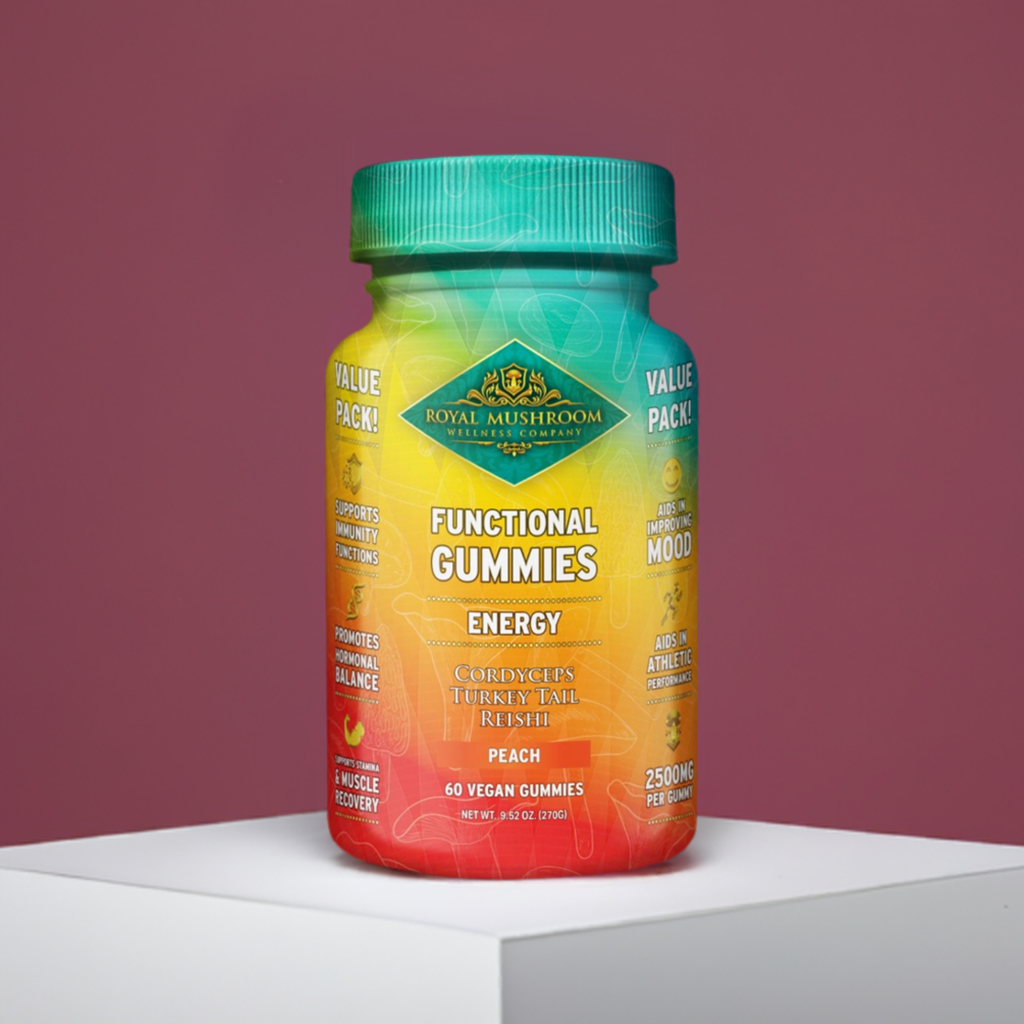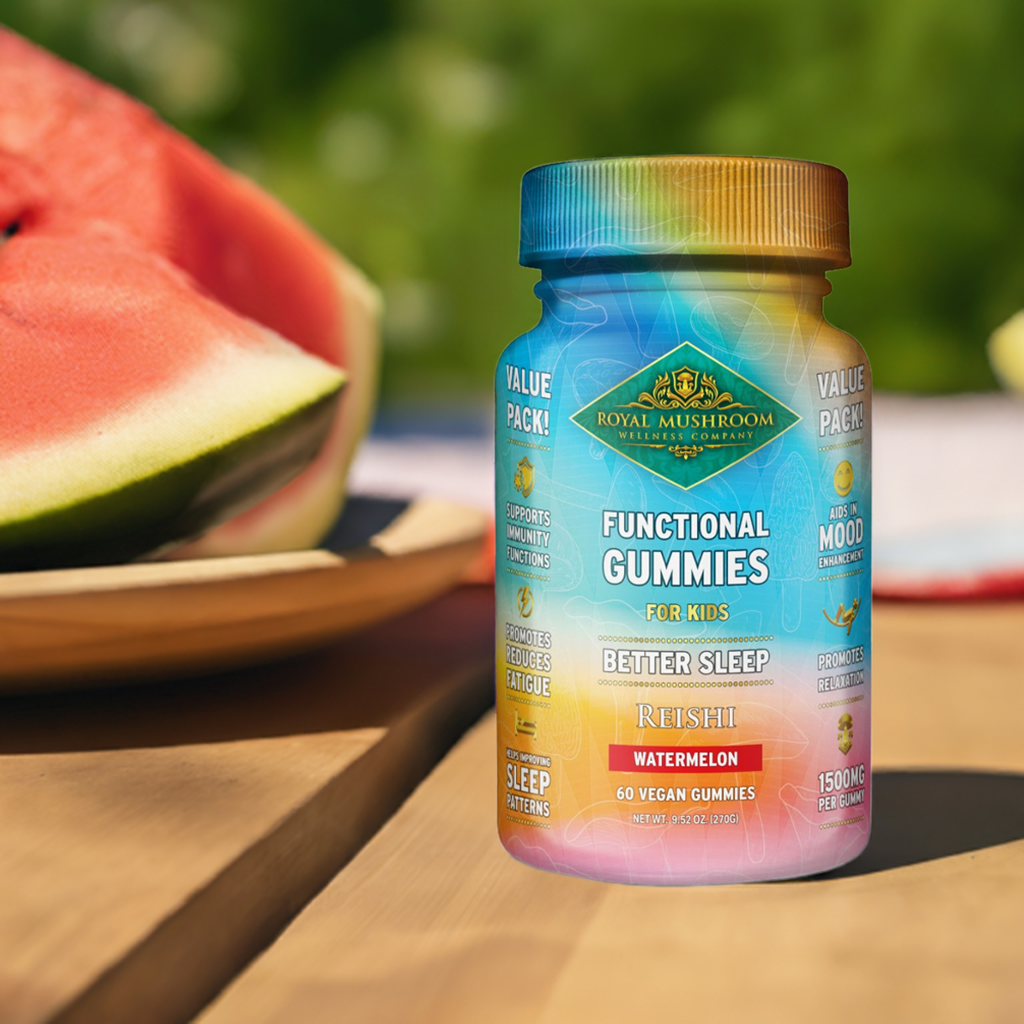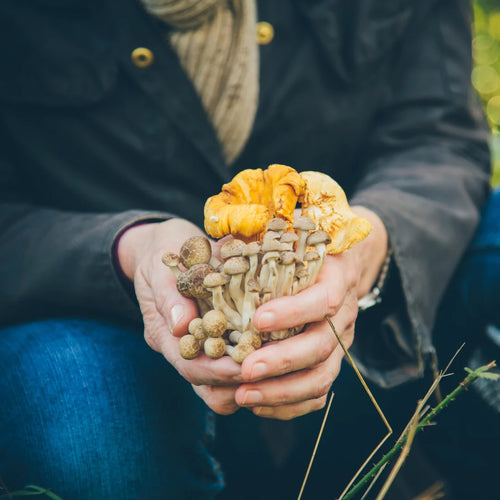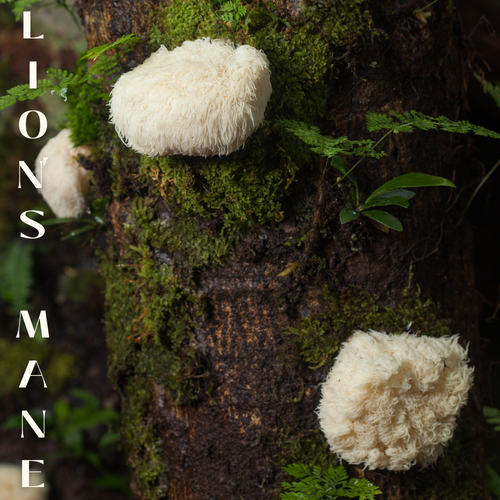As parents seek natural ways to support their children’s development, Lion’s Mane mushroom for kids has gained popularity. Especially as part of a night-time routine for kids, many are wondering: Should kids take Lion’s Mane before bed? And if so, is it safe, effective, and necessary?
In this article, we break down the science behind Lion’s Mane for kids, its benefits, safety, and how to incorporate it into a calming bedtime routine.
What Is Lion’s Mane and Why Are Parents Giving It to Kids?
Lion’s Mane (Hericium erinaceus) is a powerful functional mushroom known for its natural cognitive support, neuroprotective properties, and potential to enhance focus, memory, and mood.
Why Parents Are Interested
-
It's a non-stimulant ADHD supplement alternative
-
Acts as a brain-boosting herb for children
-
Supports immune health and neurogenesis in children
-
Encourages focus and attention support without sugar or caffeine
A 2021 clinical study found that Lion’s Mane stimulated nerve growth factor (NGF) in the brain, which is crucial for brain development and memory.
Is Lion’s Mane Safe for Children? Dosage, Age, and Safety Tips
Is Lion’s Mane Safe for Children?
There is no evidence that Lion’s Mane is harmful to children. However, because it is still a relatively new supplement in pediatrics, parents should:
-
Consult a pediatrician, especially if a child is on medication
-
Choose child-safe nootropic supplements made for kids
-
Start with a low dose and monitor effects
What Age Can Kids Take Lion’s Mane?
Most experts recommend introducing Lion’s Mane supplements for kids around age 4 to 5, once digestive and immune systems are more developed.
Lion’s Mane Dosage for Children
| Age Group | Suggested Daily Dosage |
|---|---|
| 4–6 years | 100–200 mg |
| 7–12 years | 250–500 mg |
| 13+ years | 500–1000 mg |
Start low and increase gradually. Use gummies, powders, or liquids for easy dosing.
Benefits of Lion’s Mane for Kids’ Brain Health, Focus, and Sleep
Lion’s Mane is not just for adults. Children may experience benefits such as:
Cognitive and Neurological Support
-
Promotes neurogenesis in children
-
May help with mood regulation and mental clarity
-
Encourages learning capacity and memory
Behavioral and Emotional Benefits
-
Aids children with ADHD and hyperactivity (non-stimulant support)
-
Improves focus and attention
-
Helps reduce anxiety and restlessness
Sleep and Calm
-
Works as a calming bedtime supplement
-
Can complement bedtime supplements without melatonin
-
May regulate circadian rhythms for better sleep hygiene in kids
A 2022 pilot study suggested Lion’s Mane may reduce anxiety-related behaviors and improve sleep quality.
Should Kids Take Lion’s Mane Before Bed? What the Research Suggests
Timing Matters
Lion’s Mane is not a sedative but supports calm mental clarity, making it suitable for bedtime when children are winding down.
Best Time to Take It:
-
30–60 minutes before bed for calming effects
-
Can be taken with chamomile or other bedtime herbal routine elements
Does Lion’s Mane Help Kids Sleep?
While it won’t make them drowsy, it may:
-
Reduce mental chatter before bed
-
Lower anxiety or overstimulation
-
Complement night-time routines for kids that include mindfulness, reading, or soft lighting
How to Add Lion’s Mane to Your Child’s Night-Time Routine
Best Way to Give Kids Lion’s Mane at Night:
-
Gummies: Taste-friendly and kid-approved
Recommended Products:
Integrating Into Routine
-
Take Lion’s Mane after dinner or during wind-down time
-
Pair with a screen-free bedtime routine
-
Combine with storytime, lavender essential oils, or meditation
Chart: When and Why to Use Lion’s Mane for Kids
| Goal | How Lion’s Mane Helps |
| Improve Focus | Supports attention and memory |
| Better Sleep | Reduces restlessness and anxiety |
| ADHD Management | Non-stimulant, calming effect |
| Immune Support | Modulates inflammation responses |
| Brain Development | Promotes NGF production |
FAQs: What Parents Want to Know
Is Lion’s Mane good for kids with ADHD?
Yes. It provides non-stimulant cognitive support and may enhance focus and calm without side effects linked to ADHD meds.
Does Lion’s Mane help kids sleep?
Not directly like melatonin, but its calming effects can improve sleep hygiene in kids.
What age can kids take Lion’s Mane?
Generally, ages 4 and up. Always consult with a pediatrician first.
Can kids take Lion’s Mane daily?
Yes, in low to moderate doses. It works best when taken consistently over time.
Can Lion’s Mane be combined with other supplements?
Yes. It’s often paired with magnesium, L-theanine, or herbal teas as part of a bedtime herbal routine.
Final Thoughts: Is Lion’s Mane Right for Your Child’s Night-Time Routine?
Lion’s Mane for kids can be a powerful tool in promoting focus, calm, and cognitive growth—especially when included in a well-balanced night-time routine.
-
It's generally safe when used in proper doses.
-
Works as a natural cognitive support supplement.
-
Helps create a consistent and calming bedtime ritual.
As always, consult with your child’s healthcare provider before starting any new supplement. But if you're looking for a natural, brain-boosting, calming bedtime supplement without melatonin or sugar crashes—Lion’s Mane before bed might be the gentle, effective solution you've been looking for.
